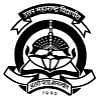B.Sc Actuarial Science Subjects and Syllabus

B.Sc. Actuarial Science syllabus can differ for the students based on the specialisation that the students decide to pursue. B.Sc. Actuarial Science subjects are spread across four semesters. The Bachelor of Science subjects are designed to give the students a deeper understanding of the course and specialisation they choose to pursue.
Semester Wise B.Sc. Actuarial Science Syllabus
The B.Sc. Actuarial Science subject list differs according to the specialisation that the candidates decide to pursue. With every specialisation, the subjects in B.Sc. Actuarial Science courses differ, as the primary focus topics change. The B.Sc. Actuarial Science 1st year syllabus primarily focuses on the foundational subjects related to the field of Statistics.
Due to this reason, the B.Sc. Actuarial Science's first-year syllabus doesn’t change all that much. The B.Sc The Actuarial Science course introduces students to all the vital information they need. Listed below is the syllabus of B.Sc. Actuarial Science according to the semester is a core subject and therefore, tends to be the same across the board.
B.Sc. Actuarial Science First Year Syllabus
The table below contains the list of B.Sc. Actuarial Science subjects in the first year:
|
Semester I |
Semester II |
|
General Insurance-I |
Knowledge of the business environment in a global scenario |
|
Functions of Mathematics |
General Insurance-II |
|
2 Dimensional Analytical Geometry |
SAP Courses |
|
Essential usages of the English Language |
The foundation of regulation of the insurance business |
|
Application and Numerical Methods |
Statistical Methods and Probability-II |
|
Understanding self for Effectiveness |
Nation and Individual Society |
B.Sc. Actuarial Science Second Year Syllabus
The table below contains the list of B.Sc. Actuarial Science subjects in the second year:
|
Semester III |
Semester IV |
|
Statistical Methods and Probability |
Life Insurance –II |
|
Life Insurance-I |
Foreign Business Language |
|
Calculus application in Actuarial Science Elective Subjects |
Innovative solutions and modern trends through technology management |
|
Open Elective Courses |
Creation of Global New Ventures |
B.Sc. Actuarial Science Third Year Syllabus
The table below contains the list of B.Sc. Actuarial Science subjects in the third year:
|
Semester V |
Semester VI |
|
Outdoor Activity-Based Courses |
Actuarial Application in IT-III |
|
Strategizing using Innovation |
Management Foundation |
|
Methods of Applied Mathematics |
Minor Project – I |
|
Probability & Statistical Methods - III |
Sampling Techniques |
|
Actuarial Accounting –II |
Principles of Finance |
|
Actuarial Application in IT-I |
Outdoor Activity Bases Courses |
B.Sc. Actuarial Science Subjects
B.Sc. Actuarial Science subjects are dependent on the specialisation that the aspirants decide to pursue. B.Sc. Actuarial Science subjects are decided based on the core topics in statistics, as well as the topics in the specialisation.
B.Sc. Actuarial Science subjects are divided into core subjects. The elective subjects are optional subjects that make the course flexible and diverse.
B.Sc. Actuarial Science Core Subjects
The core B.Sc. Actuarial Science subjects list contains essential subjects that all B.Sc. Actuarial Science students study irrespective of their specialisation, which is as follows:
- Functions of Mathematics
- 2 Dimensional Analytical Geometry
- Essential usages of English Language
- Application and Numerical Methods
- Understanding self for Effectiveness
B.Sc. Actuarial Science Course Structure
The B.Sc. Actuarial Science course structure consists of core subjects. The course is a three-year-long undergraduate course, divided into six semesters. From the third semester onwards, students are introduced to specific subjects related to their specialisation.
The course structure is:
- VI Semesters
- Core Subjects
- Undergraduate Course
- Research Project
B.Sc. Actuarial Science Teaching Methodology and Techniques
B.Sc. Actuarial Science teaching methodology and techniques encompass traditional lecture-based training. The traditional classroom teaching methods allow the students to ask the queries they might have and get answers to them.
The course has teaching methodologies and techniques designed to ensure that the students pursuing this course have access to all the infrastructure and facilities available. Listed below are the teaching methodology and strategies in general:
- Lectures
- Practical Sessions
- Research Papers
- Seminars
- Group Discussions
- Traditional Classroom-Based Teaching
B.Sc. Actuarial Science Course Projects
When pursuing a Bachelor of Science course, research projects are an integral part of the studies. These projects are assessed by the professors to judge the student's understanding of the subjects. Students can choose their project topics based on the specialisation they choose to pursue. Some of the popular research projects are listed below:
- Functions of Mathematics
- Geometry
- General Insurance
- Statistics
- Calculus Application
B.Sc. Actuarial Science Course Books
When pursuing a B.Sc. Actuarial Science books can be a great investment for the students as they can really help them learn about their specialisation in great detail.
Books can be a source of information for the students whereby they can further learn about topics of their interest. Students can rent out reference books from libraries, download them online or purchase them.
Listed below are some of the popular B.Sc. Actuarial Science course books that the students can invest in:
|
Name of Book |
Author |
|
Introduction to Actuarial Science |
Harry Anson Finney |
|
Computational Actuarial Science with R |
Arthur Charpentier |
|
Actuarial Statistics |
Shailaja R Deshmukh |
|
Introduction to Actuarial and Financial Mathematical Methods |
Stephen Garrett |
|
Introduction to Actuarial |
A.K.Gupta T. Varga |
























